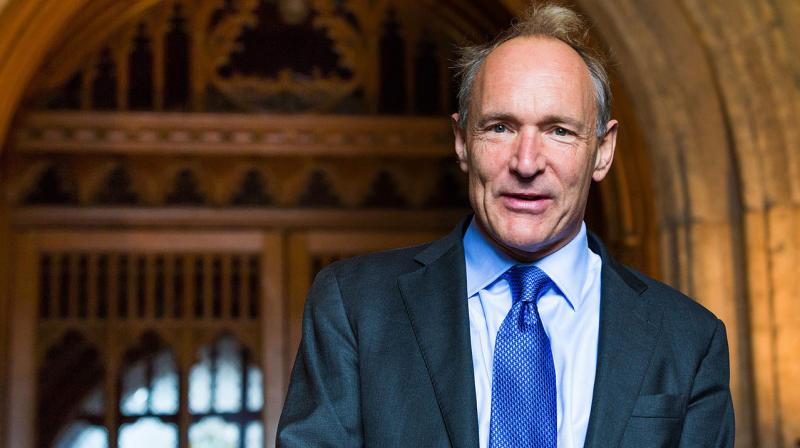World Wide Web inventor Tim Berners-Lee wants everyone to have net by 2030
14 June, 2020

World Wide Web inventor Tim Berners-Lee said Thursday the COVID-19 pandemic demonstrates “the gross inequality” of a global where almost one half the populace is unable to hook up to the internet.
He told a good high-level UN getting together with “our number 1 focus should be to close the digital divide.”
Some 3.5 billion persons have missed from the “lifeline” the web has provided through the coronavirus crisis which has allowed work, education and social connections online, Berners-Lee said.
“This inequality is a barrier to wider equality, and we realize it most affects those who are already marginalized - persons in growing countries, those on low incomes, not to mention, women and girls, he said. “Men remain 21 percent much more likely than ladies to come to be online, and 52 percent much more likely whatsoever developing countries.”
He spoke at the web start of UN Secretary-Standard Antonio Guterres’ Roadmap for Digital Cooperation.
An initial step is to develop new financial designs to provide affordable connectivity to the Internet for everyone by 2030.
Tackling inequality requires increasing the bar from standard usage of ensuring that persons have “meaningful connectivity” to the web “that has to include data and devices to utilize the full ability of it,” Berners-Lee explained.
When people do get online, they must also find that it's safe, participants said.
The digital world has benefits, but also offers been “gravely misused,” Guterres said.
“Hate speech, discrimination and abuse will be about the march in digital places,” the UN chief explained. “Misinformation promotions put health and lives at risk. ... Life-threatening cyber episodes on hospital systems threaten to disrupt lifesaving good care.”
The Roadmap for Digital Cooperation aims “to connect, respect, and protect persons in the digital age” by promoting open data, open artificial intelligence and financing models and open source software, Guterres said.
It also demands expanded training, data protection and personal privacy, and offers the UN as a good system for cooperation to make certain that artificial intelligence is trustworthy, respects human privileges and promotes peace.
“Unless we address digital instability and inequality, they will continue steadily to exacerbate physical instability and inequality,” Guterres said, warning that digital divides risk turning into “the new face of insecurity and conflict.”
THE INTERNET Foundation, co-founded by Berners-Lee, helped develop the Roadmap. This past year it introduced the “Agreement for the net,” a global action plan for governments, firms and civil world to counter growing anti-democratic activity on the internet and keep knowledge freely available.
The contract has 1,300 endorsements and the building blocks is producing ways for governments and companies showing how they’re living up to commitments to accomplish a “safe and empowering web, connecting the unconnected, respecting privacy (and) fighting misinformation,” Berners-Lee said.
Because the onset of the COVID-19 crisis, internet consumption has jumped 70 percent, the consumption of communication apps is continuing to grow by 300 percent and virtual collaboration tools by 600 percent. Some video recording streaming services have become 20-fold, said Klaus Schwab, executive chairman of the World Economic Forum.
But he said no more than half of the community has access to the internet. Of the 25 least connected countries, 21 will be in Africa.
The Universe Economic Forum spent some time working with the industry partners, the International Telecommunication Union, the World Lender and GSM - which represents the interests of cellular operators worldwide - and other folks to develop plans for private-open public collaboration on expanding digital connectivity.
“This has recently been shared with 170 countries and is in active use,” he said. “This fast monitor partnership is definitely deeply encouraging.”
Schwab needed “ambitious” action on digital access and investment in impressive funding models. He noted simply 1% of financing from global development banks would go to digital infrastructure.
Redefining rules designed for cyberspace is merely as important as building digital infrastructure, stated Ajay Banga, incoming seat of the Overseas Chamber of Commerce and the president and CEO of Mastercard.
“This is the time to focus on protecting the whole digital ecosystem and a worldwide population of users instead of discreet parts of the system,” Banga said.
“We should rebuild better, considerably more resilient, extra inclusive,” Vodaphone CEO Nick Reading told the forum. “The (UN) roadmap is essential for this.”
Source:
